TERRESTRIAL RESEARCH
Exploring and Preserving Curaçao’s Land-Based Ecosystems
Carmabi’s terrestrial research focuses on understanding Curaçao’s diverse landscapes, flora, and fauna, providing essential insights for conservation, restoration, and sustainable land management. By studying native species, habitat dynamics, and ecological threats, researchers contribute to the protection of the island’s unique terrestrial biodiversity.
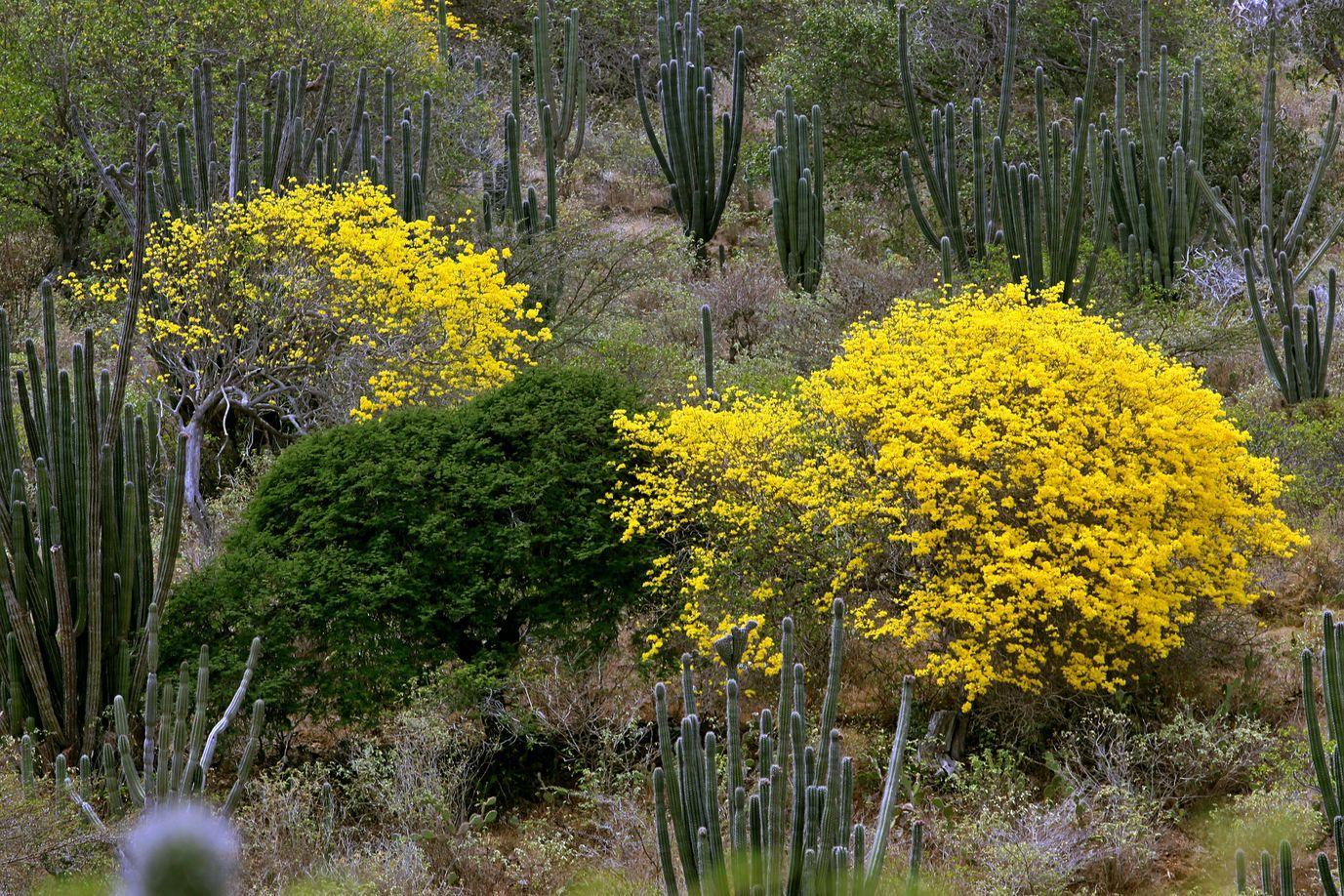
WHAT WE DO
Carmabi conducts terrestrial research to improve our understanding of nature. Our research topics are important for effective park management, including studies on the changes in the park's vegetation and wildlife populations. The research is also conducted and applied to other natural areas of Curacao and the wider Caribbean.
Research collaborations are important to increase the number and quality, for this reason Carmabi extensively works together with universities and research facilities in the region and around the world to further the knowledge on our terrestrial ecosystems.
ECOSYSTEMS
Important component of the terrestrial research focus is the study of the terrestrial ecosystems of Curacao. Important studies include the landscape-ecological vegetation maps produced by Carmabi for the Christoffelpark, Curacao and the other Dutch islands Bonaire, St. Maarten, Saba and Statia (see publications for more info).
The understanding of ecosystem functioning and services provides a starting point for further research on the different components ecosystems provide, for example on the status of wildlife populations, such as the Curacao White-tailed Deer and our birds, as well as the phylogeny of different plant species.
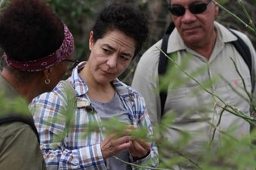
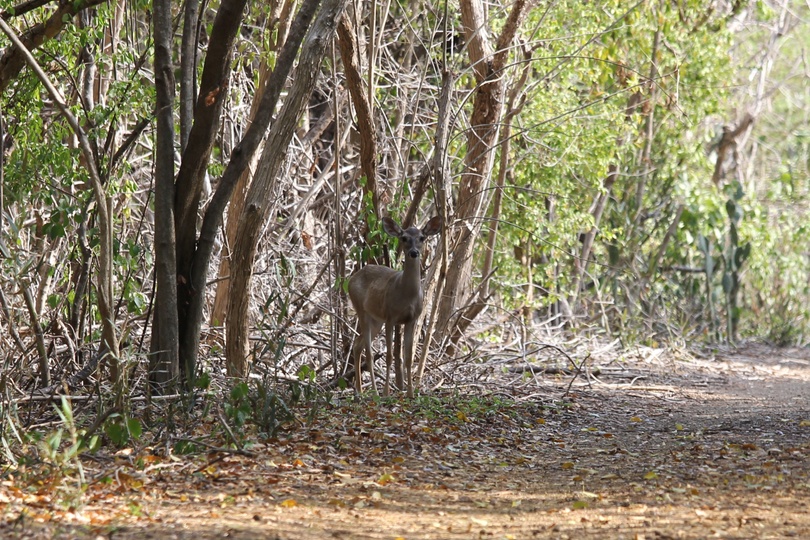
CURACAO WHITE-TAILED DEER
The Curaçao White-tailed Deer (Odocoileus virginianus curassavicus) is one of the island’s most unique and elusive native species. As a subspecies of the American White-tailed Deer, it is found only on Curaçao and Isla Margarita, making it an important part of the island’s natural heritage.
Habitat & Distribution
This rare species is primarily found in the northwestern part of Curaçao, with a significant portion of the population residing within Christoffel National Park. The park provides an essential refuge for these deer, offering a mix of dense vegetation, rocky terrain, and water sources, which are crucial for their survival in the island’s semi-arid climate.
Population & Ecological Role
Estimating the population size of the Curaçao White-tailed Deer is challenging due to their secretive nature and fluctuating environmental conditions. Research conducted in the 1980s revealed that population numbers vary depending on rainfall levels:
- In wet years, the population was estimated to be at least 450 individuals.
- In dry years, the numbers dropped to approximately 250 individuals due to reduced food and water availability.
As herbivores, these deer play an essential role in shaping the island’s vegetation by influencing plant growth and seed dispersal. Their presence contributes to the overall balance of the ecosystem in Christoffel National Park.
Threats & Conservation Efforts
Despite their adaptation to Curaçao’s environment, the White-tailed Deer faces several threats, including habitat loss, illegal hunting, and climate change. Prolonged dry periods can severely impact food and water availability, affecting population stability.
To protect this endangered subspecies, conservation efforts within Christoffel National Park focus on:
- Preserving natural habitats to ensure sustainable food and water resources.
- Monitoring populations to track changes and assess conservation needs.
- Raising awareness about the importance of protecting this unique species.
The Curaçao White-tailed Deer is a symbol of the island’s rich biodiversity and a reminder of the need for continued conservation efforts to safeguard its future. Through habitat protection, research, and public awareness, Carmabi remains committed to ensuring that this remarkable species continues to thrive on Curaçao.
SEA TURTLE MONITORING
The pocket beaches of Shete Boka National Park serve as crucial nesting grounds for sea turtles in Curaçao. These secluded coastal areas provide a safe environment for turtles to lay their eggs, contributing to the survival of several endangered species, including the Green Turtle (Chelonia mydas), Hawksbill Turtle (Eretmochelys imbricata), and Loggerhead Turtle (Caretta caretta).
Monitoring & Research
Understanding the nesting behavior and success rates of sea turtles is essential for conservation efforts. From May to December, Carmabi researchers conduct regular patrols along the beaches of Shete Boka National Park to monitor nesting activity, track population trends, and assess environmental threats.
During these patrols, researchers:
- Identify and record nesting sites to track the number of nests per season.
- Measure and document turtle tracks to determine species presence and nesting patterns.
- Assess hatching success rates by analyzing nests after the incubation period.
- Monitor potential threats such as coastal erosion, predation, and human disturbances.
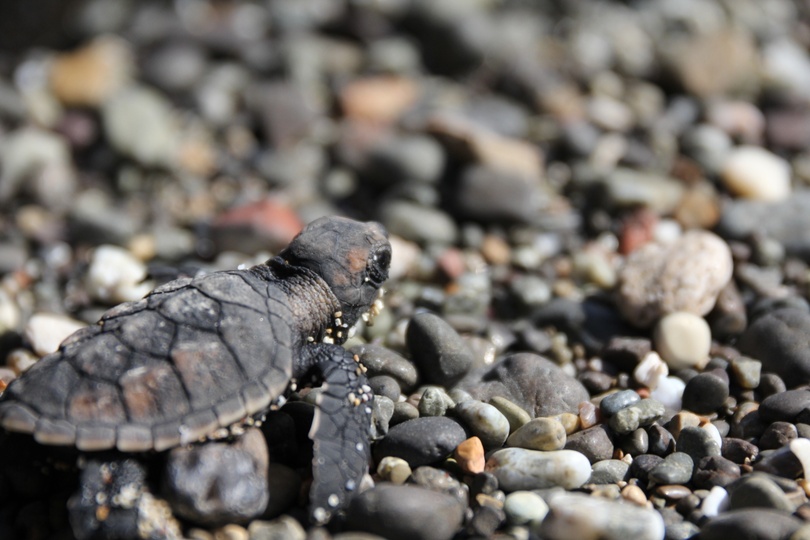
Threats & Conservation Efforts
Despite their ecological importance, sea turtles face several threats, including habitat degradation, climate change, marine pollution, and poaching. Rising sea temperatures and changing weather patterns can impact nesting success, while plastic pollution and fishing activities pose significant dangers to both hatchlings and adult turtles.
To mitigate these risks, Carmabi works closely with local authorities, conservation organizations, and volunteers to protect nesting beaches, raise awareness, and implement strategies such as:
- Beach clean-ups to maintain safe nesting environments.
- Community engagement programs to educate locals and tourists about responsible beach behavior.
- Long-term monitoring studies to inform conservation policies and management decisions.
The Importance of Sea Turtle Conservation
Sea turtles play a vital role in marine ecosystems by maintaining the health of seagrass beds and coral reefs. Protecting these species not only supports biodiversity but also strengthens Curaçao’s coastal resilience against environmental changes.
Through dedicated research and conservation efforts, Carmabi remains committed to safeguarding sea turtles and their habitats, ensuring that future generations can continue to witness these iconic marine creatures in the waters of Curaçao.
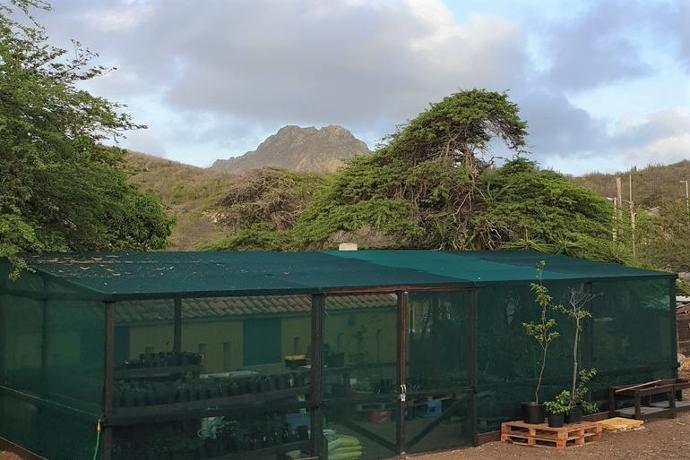
Carmabi's nursery
The Carmabi Nursery plays a vital role in supporting ecosystem restoration, biodiversity conservation, and environmental education on Curaçao. As part of Carmabi’s broader mission to protect and restore the island’s natural habitats, the nursery cultivates a variety of native and endangered plant species, including mangroves, coastal vegetation, and rare endemic trees.
Restoration & Conservation
The nursery serves as a key resource for reforestation projects and habitat restoration efforts across Curaçao. Many of the plants grown here are used in conservation initiatives to restore degraded landscapes, stabilize coastal areas, and enhance biodiversity in protected zones such as Christoffel National Park, Shete Boka National Park, and Seru Largu National Park.
Supporting Research & Education
In addition to restoration efforts, the nursery also supports scientific research and educational programs. Schools, university students, and local organizations visit the greenhouse to learn about native plant species, climate resilience, and sustainable land management. Through hands-on activities, visitors gain insight into the importance of vegetation in combating soil erosion, improving water retention, and supporting local wildlife.
Community Engagement
The Carmabi Nursery is also a platform for community-driven conservation efforts. Volunteers and local residents participate in planting initiatives, workshops, and awareness campaigns aimed at promoting a greener, more sustainable Curaçao.
By cultivating native flora and promoting environmental awareness, the Carmabi Nursery plays a crucial role in preserving the island’s natural heritage for future generations.